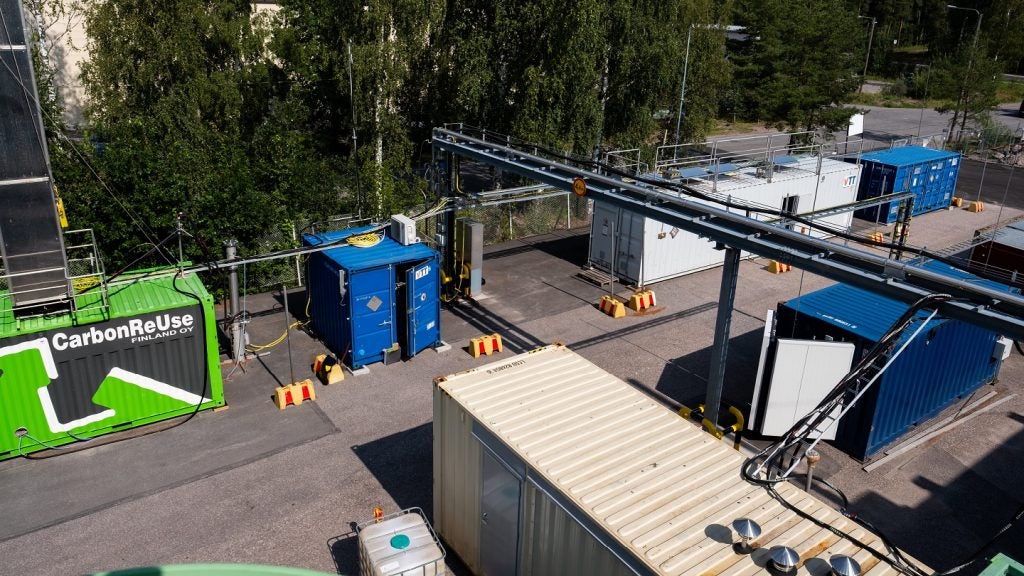VTT Technical Research Centre of Finland, alongside LUT University and industry partners, has inaugurated a pilot plant in Espoo, Finland that converts captured carbon dioxide (CO₂) into plastic materials.
This initiative is part of a broader effort to replace fossil-based raw materials with more environmentally friendly alternatives.
The pilot plant, constructed using sea containers, commenced operations this month and represents a significant stride in renewable energy and the hydrogen economy.
It leverages biobased CO₂ emissions from industrial sectors to foster sustainable industrial activity within Finland.
The Finnish Government Programme has set ambitious targets to expand the use of technological carbon sinks as a measure to reduce greenhouse gas emissions.
The Forest CUMP research project, a collaborative effort between VTT and LUT University, has explored the potential of converting biobased CO₂ from sources such as the forest industry and waste incineration into valuable products such as polypropylene (PP) and polyethylene (PE).
The pilot plant, situated at the Bioruukki pilot centre, is a practical step towards applying the Forest CUMP research project.
VTT research professor Juha Lehtonen said: "Finland produces around 30 million tonnes of biobased carbon dioxide per year. If captured and converted into products, Finland could become a major producer and exporter of polymers and transport fuels made from carbon dioxide and hydrogen.
"The technology creates a significant export opportunity for renewable high-value-added products. Due to its extensive forest industry, Finland has a huge potential to utilise biobased carbon dioxide. Outside the Nordic countries, large sources of biobased carbon dioxide are rare.”
PP and PE, the most commonly used plastics in daily life, are traditionally sourced from fossil raw materials.
However, the new technology offers a promising alternative and a considerable export opportunity for renewable high-value-added products.
The Forest CUMP project operates within the Business Finland Veturi ecosystem, which aims to promote sustainable development and national carbon neutrality.
It is supported by major Finnish companies, including Borealis, as part of its SPIRIT programme to facilitate the green transition of the plastics industry.
The project, which began in August 2022, will continue until the end of 2024.









